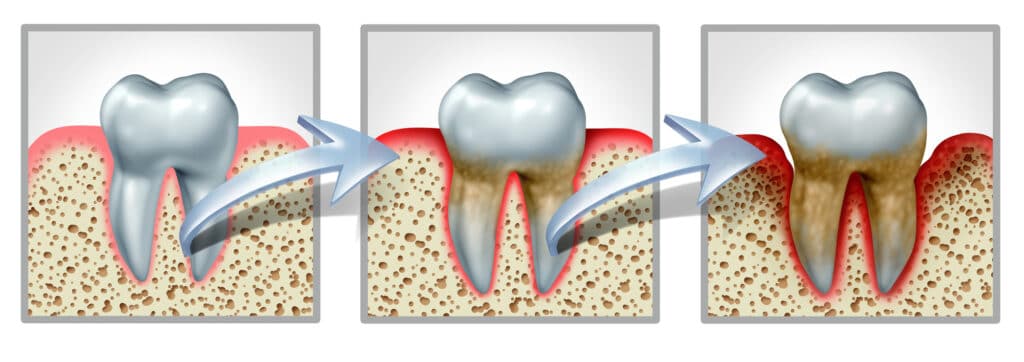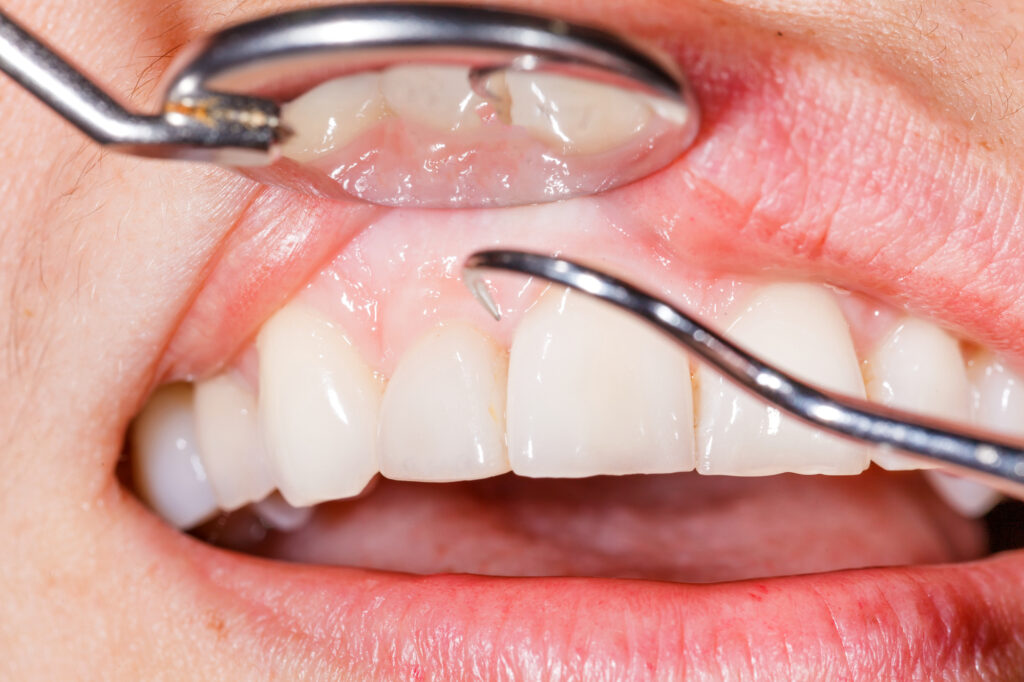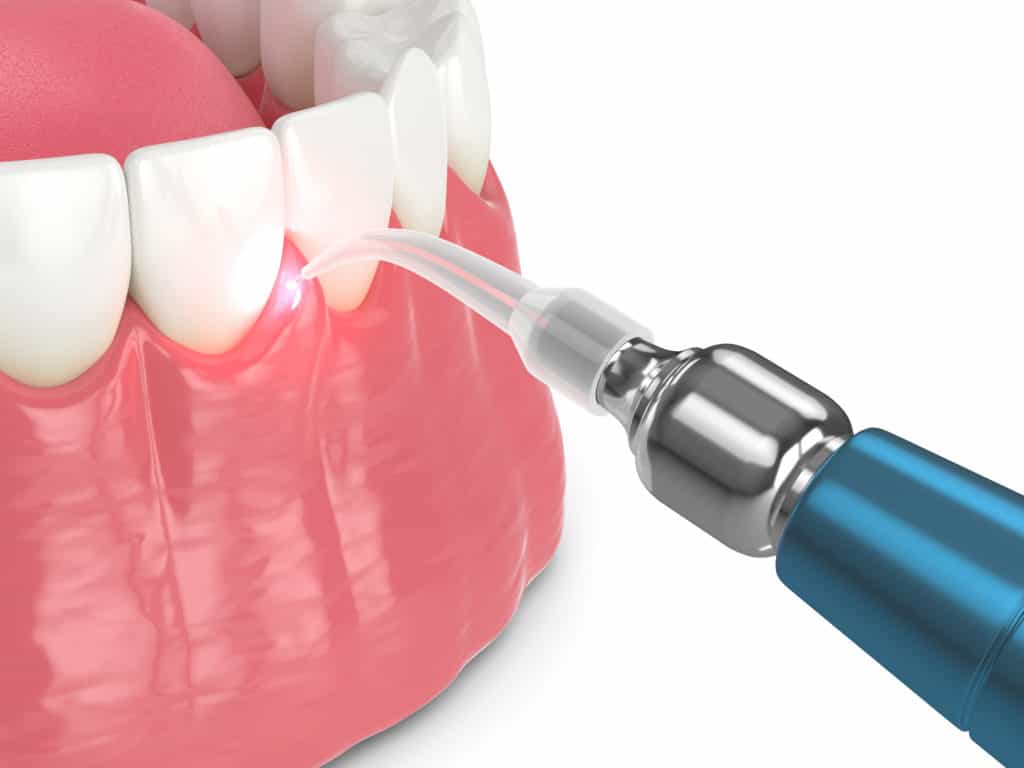
Periodontal disease–also known as gum disease–is an infection in the gum tissue. It is caused by a buildup of plaque and harmful bacteria below the gumline. If left untreated, periodontal disease can lead to significant health issues, including extensive tooth loss.
At Austin Laser Dentist, Dr. Helen Ragsdale uses gentle and effective methods to treat periodontal disease. So, don’t wait–schedule your appointment now by calling 512-346-4690 or sending us a message here.
Think periodontal disease isn’t a big deal? Here are seven surprising facts that might change your mind.
Periodontal Disease Can Be Silent
The beginning stage of periodontal disease–known as gingivitis–can be painless with few visible signs of infection. However, there are a few sneaky signs and symptoms to look out for, such as:
- -Your gums appear darker than usual
- -You notice blood after flossing or brushing
- -You have bad breath, even after brushing
- -Your teeth seem to be getting longer
These are all indications that a periodontal infection is eroding delicate gum tissue and damaging teeth.
Gum Disease Is Extremely Common
The CDC estimates that almost 50% of all adults over the age of 30 have some form of gum disease. And, that statistic keeps rising as we get older. Experts believe that almost 70% of adults over the age of 65 show signs of gum disease.
Gum Disease Is the Leading Cause of Tooth Loss
The National Institute of Dental and Craniofacial Research states that gum disease is the leading cause of tooth loss. This is because periodontal disease can weaken both the hard and soft tissues of the mouth over time.
Subsequently, the structures–like gums and bone–that keep teeth firmly in place begin to degrade. And, after extensive degradation, teeth lose the support that anchors them to the jaw, making tooth loss a very real threat.
Periodontal Disease Leads to Chronic Conditions
There is sufficient evidence to suggest that gum disease can lead to or worsen chronic conditions, such as:
- -Heart disease
- -Diabetes
- -Stroke
- -Respiratory issues
- -Dementia and Alzheimer’s Disease
- -Pregnancy complications, premature birth, and low birth weight
Gum Disease Is Contagious
Yes, you read that correctly–gum disease is an infectious disease. This is because the bacteria that cause gum disease can spread to other people. Typically, people transfer gum disease-causing bacteria to others by sharing food, drinks, and kisses.
Yogurt Might Prevent Periodontal Disease
A 2017 study found that individuals who ate yogurt regularly were less likely to develop gum disease. Medical and dental professionals attribute this to the probiotic properties of fermented milk.
Yogurt–a fermented milk product–contains millions (sometimes billions!) of healthy bacteria. These healthy bacteria prevent bad oral bacteria from growing out of control, thereby limiting the risk of gum disease.
Gingivitis Can Be Reversed
Gingivitis–the initial stage of periodontal disease–is curable. In fact, Dr. Ragsdale is uniquely skilled at using gentle dental lasers to disinfect periodontal pockets and encourage healing. As a result, her patients rid themselves of a progressive disease that can jeopardize their oral and overall health.
Periodontal Treatment in Austin, TX
Gum disease will not go away without the help of a skilled dentist. That’s why you need to call Austin Laser Dentist right now. Dr. Helen Ragsdale can save your gums, teeth, and systemic health with ultra-precise and gentle dental lasers. Don’t wait–contact our Austin, TX, dental office at 512-346-4690 or online here.


